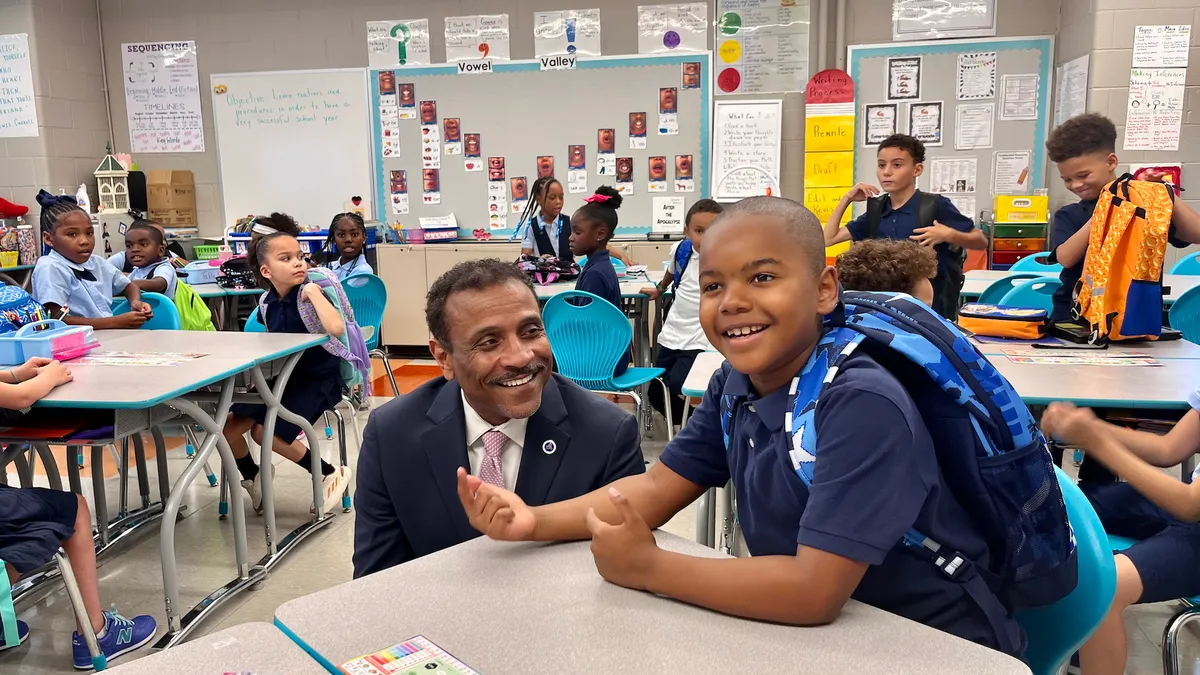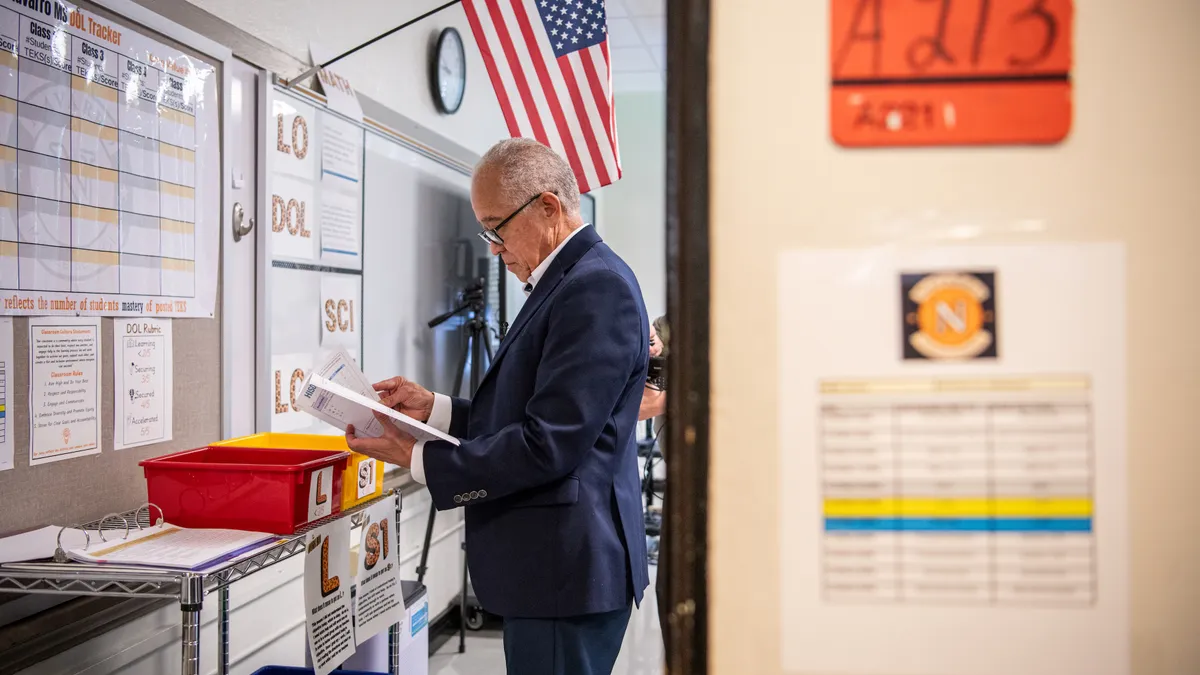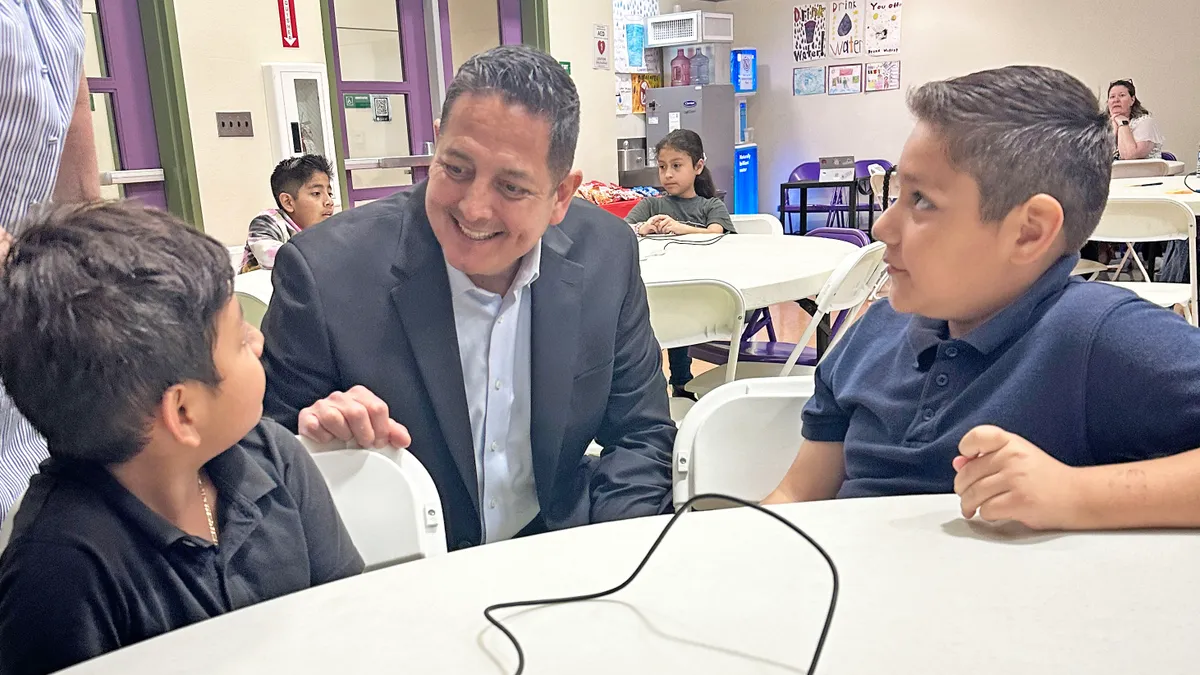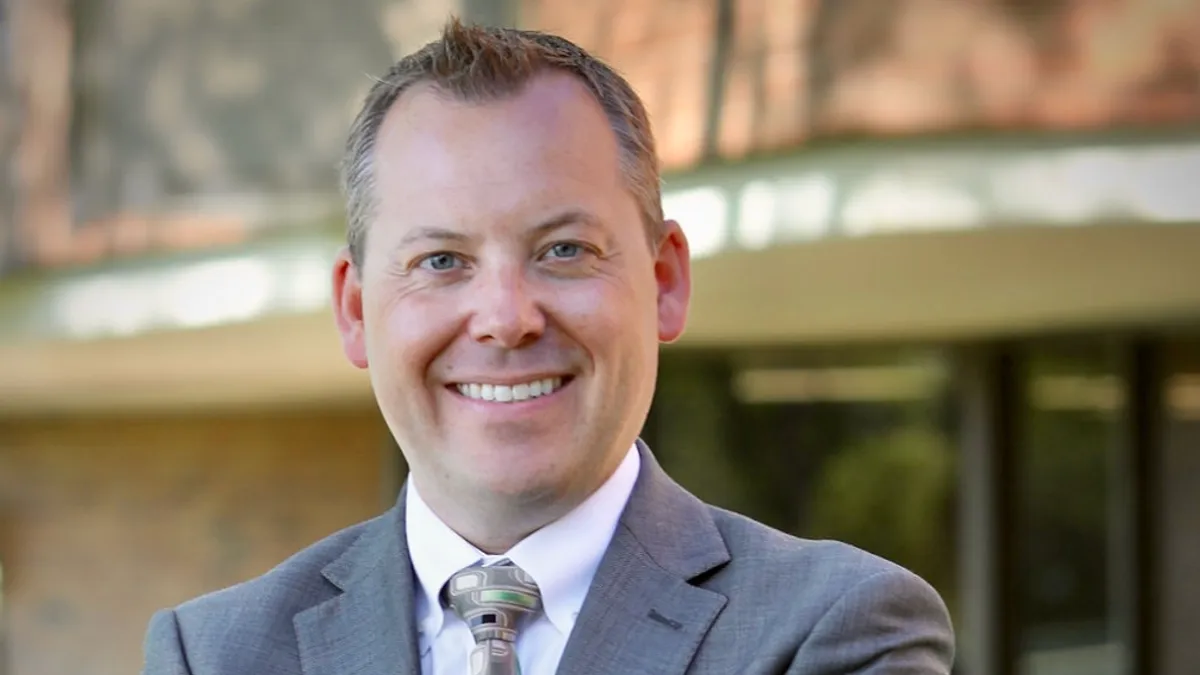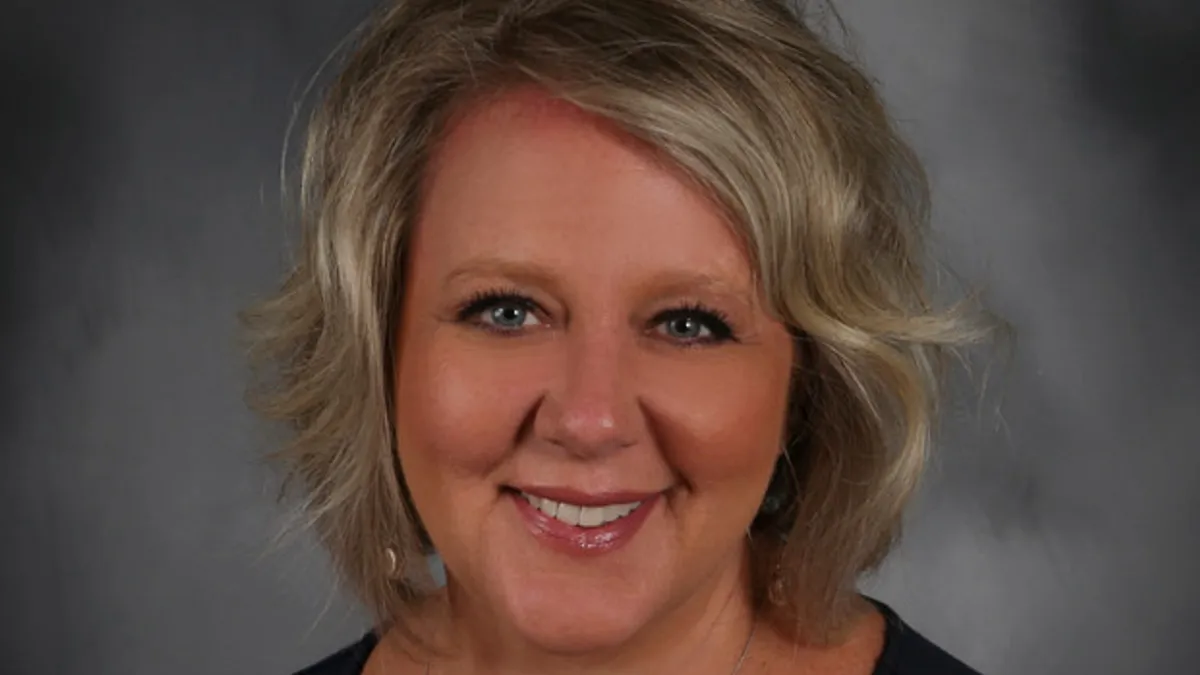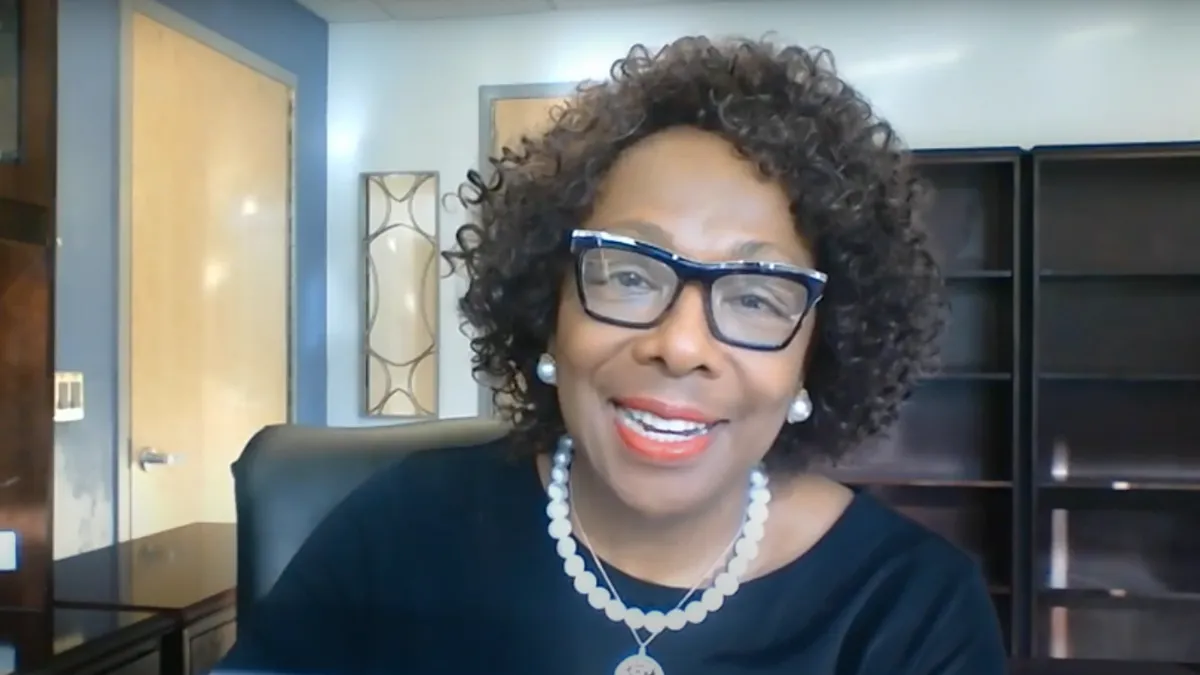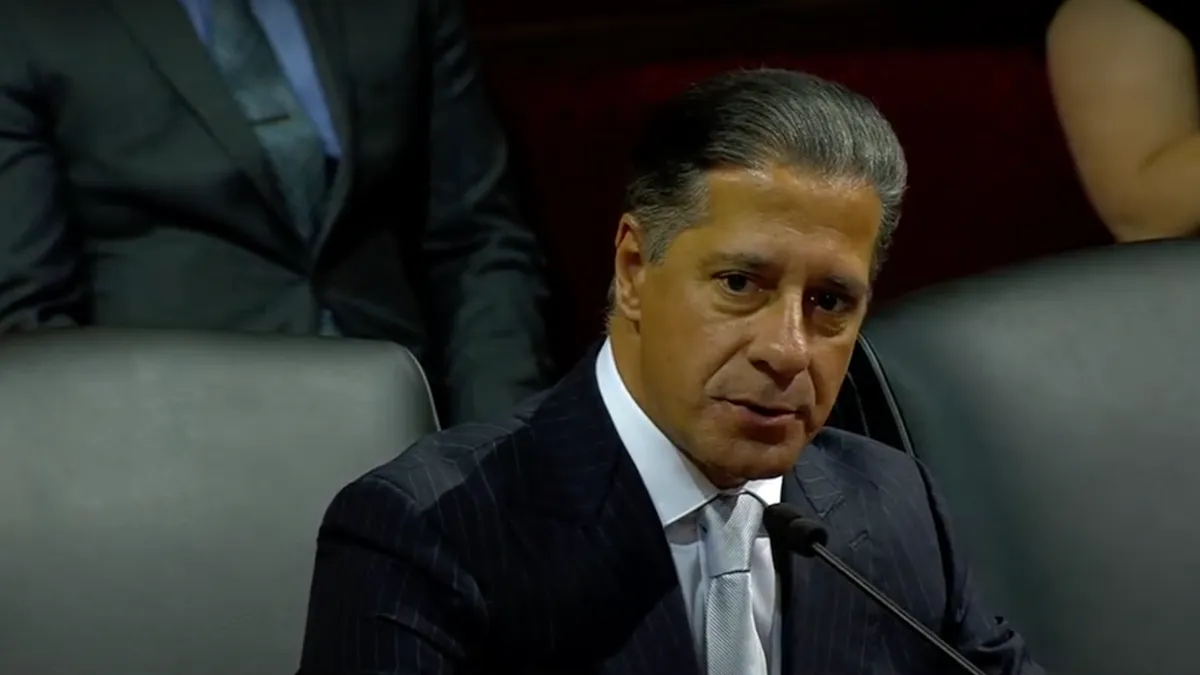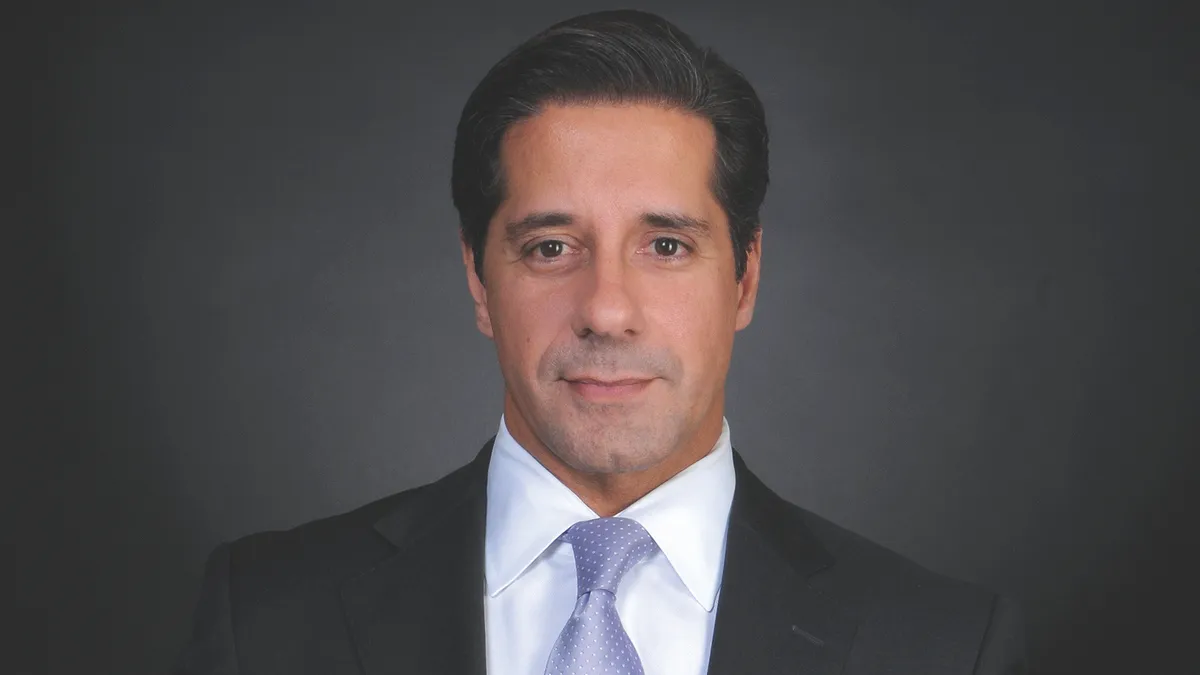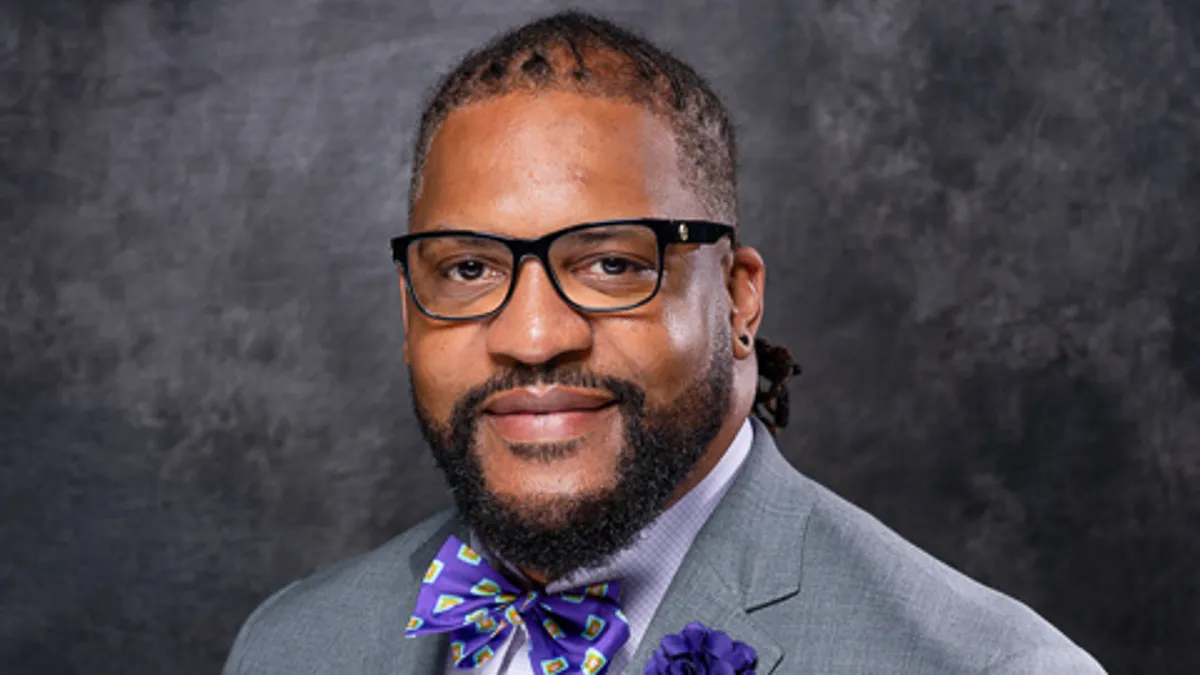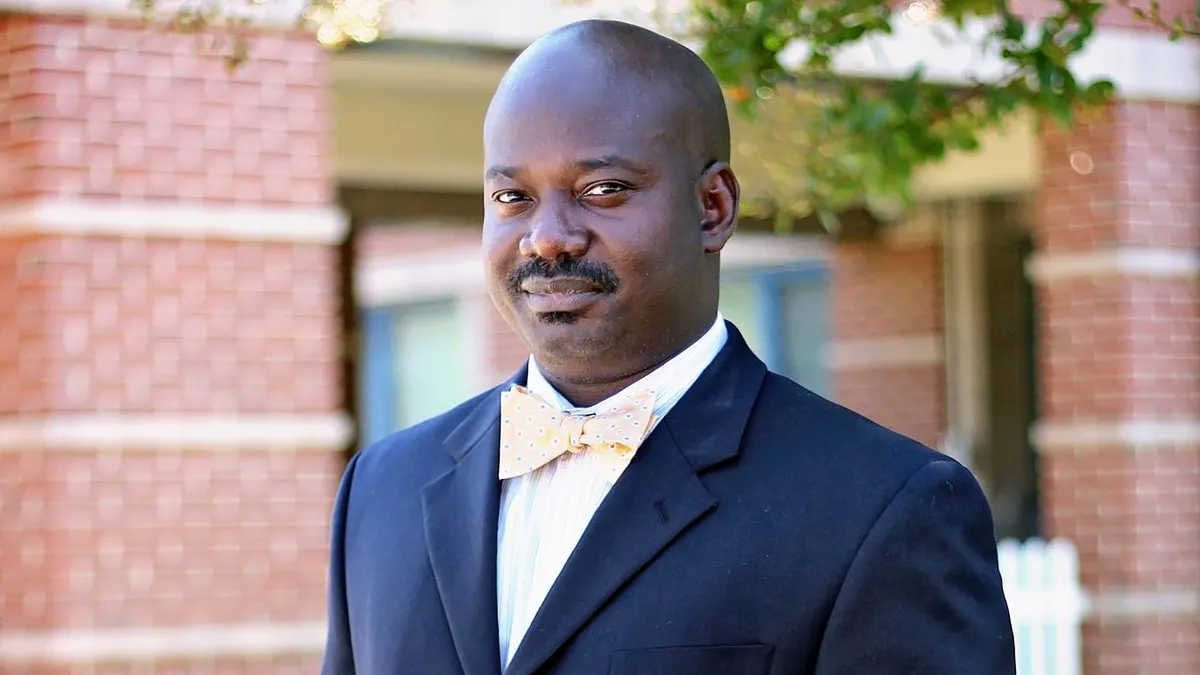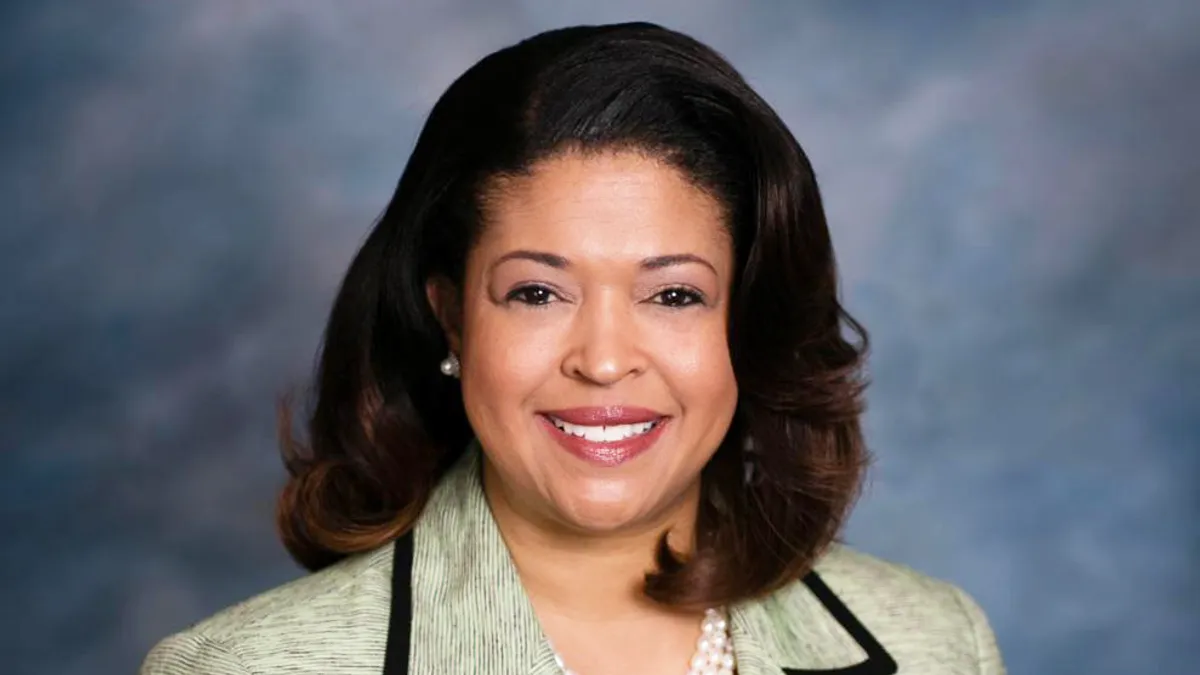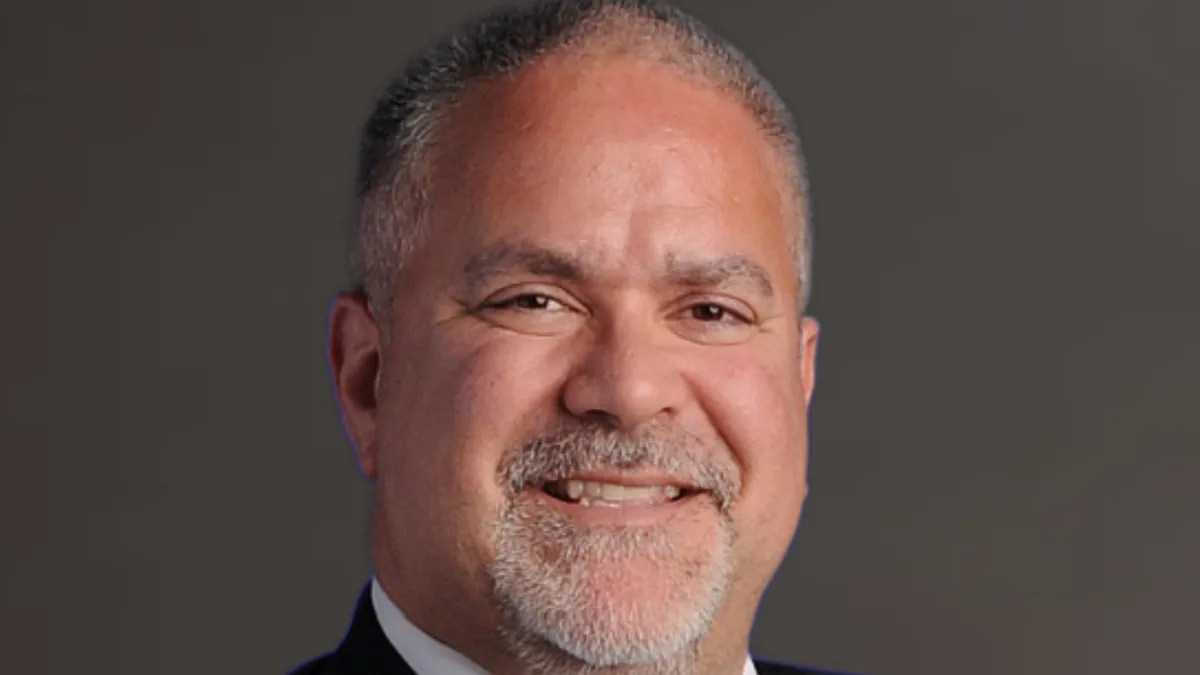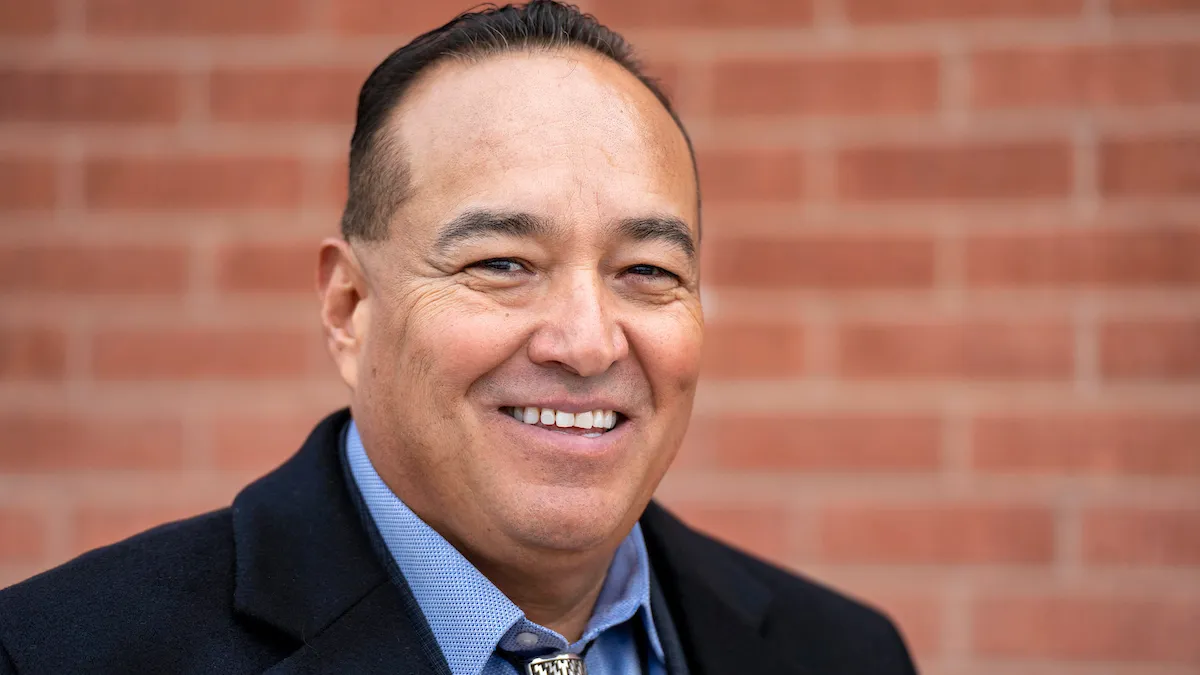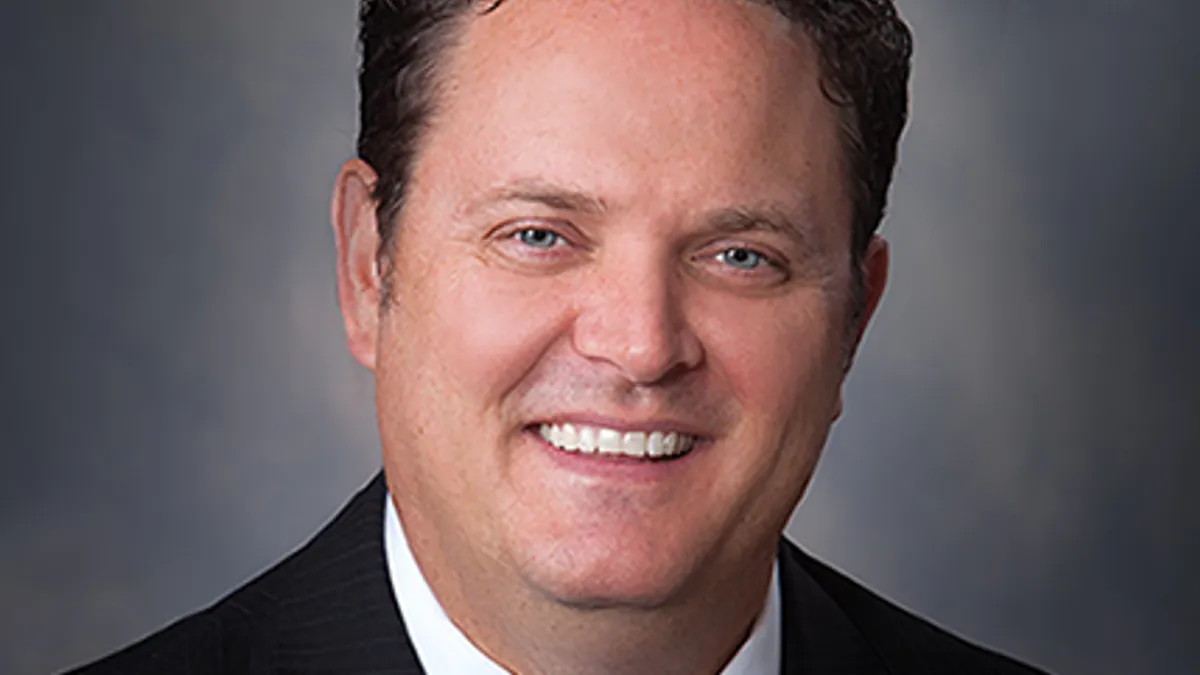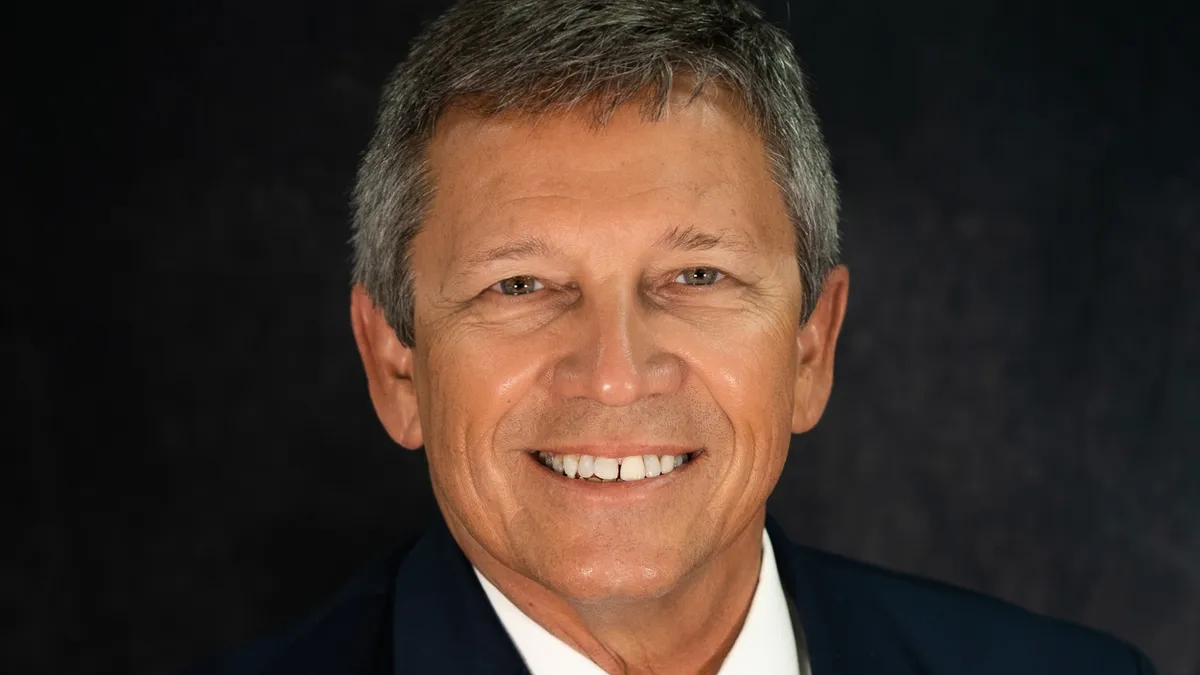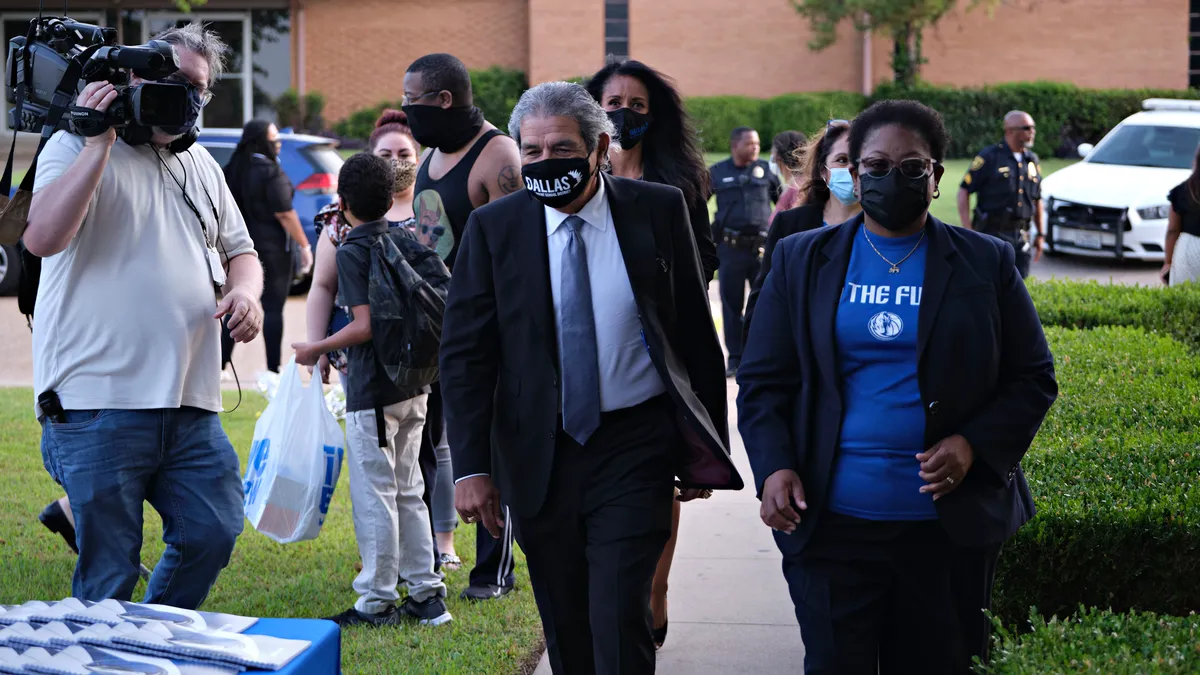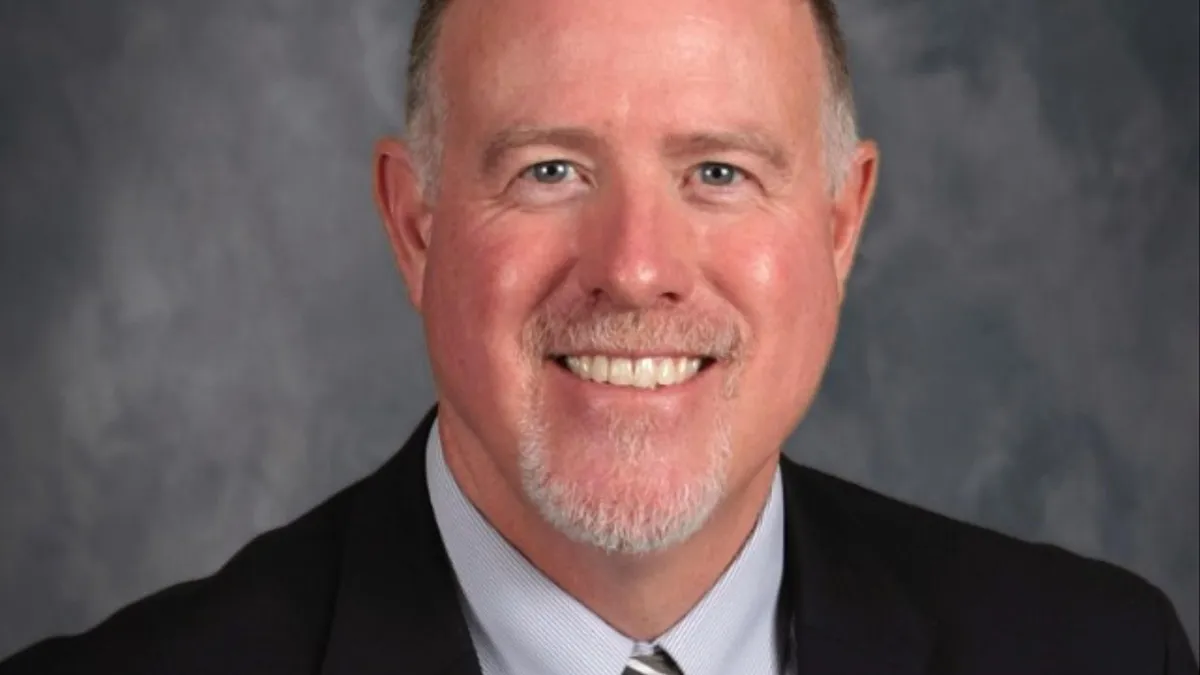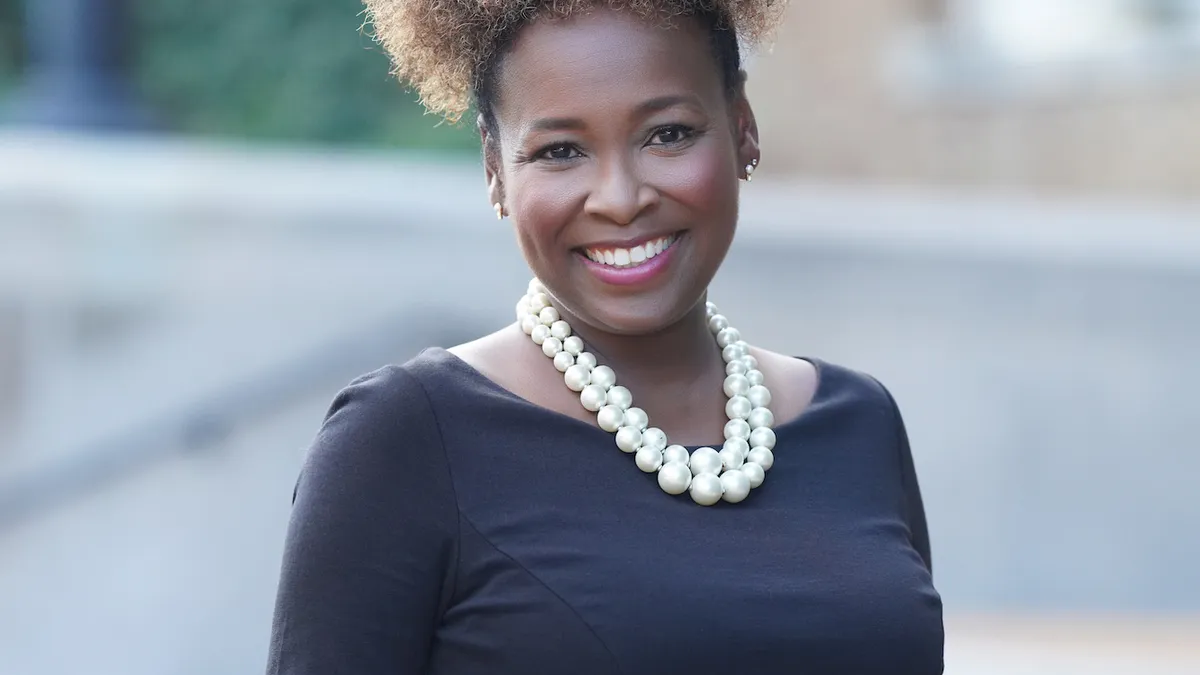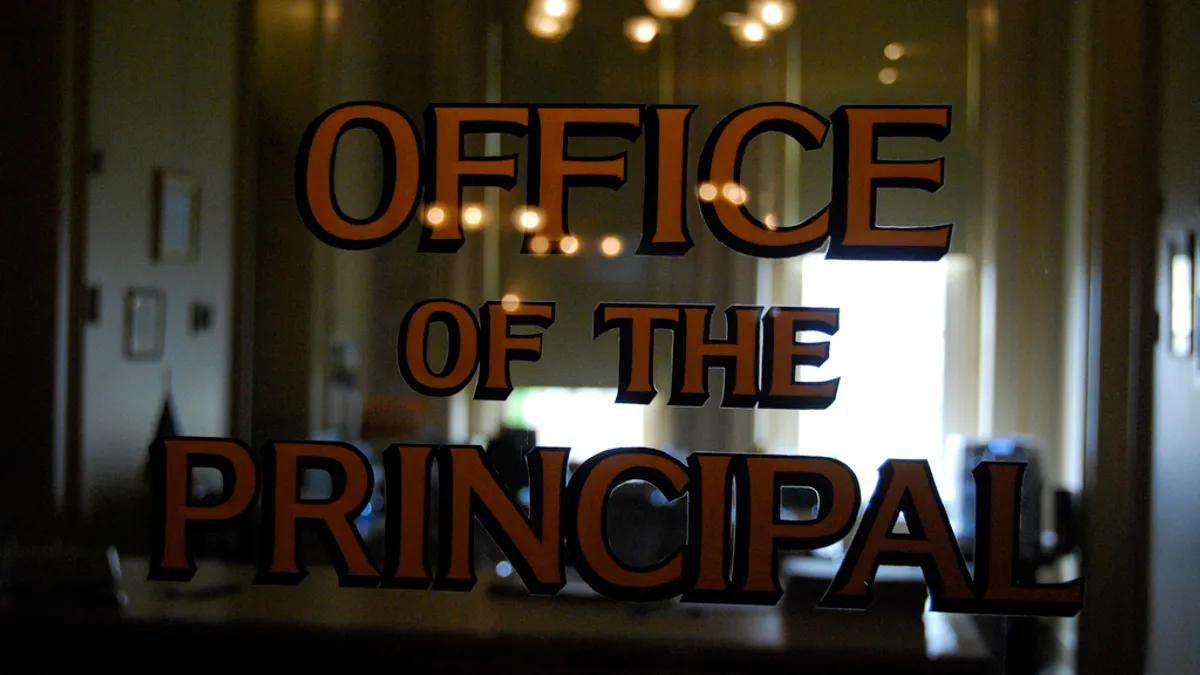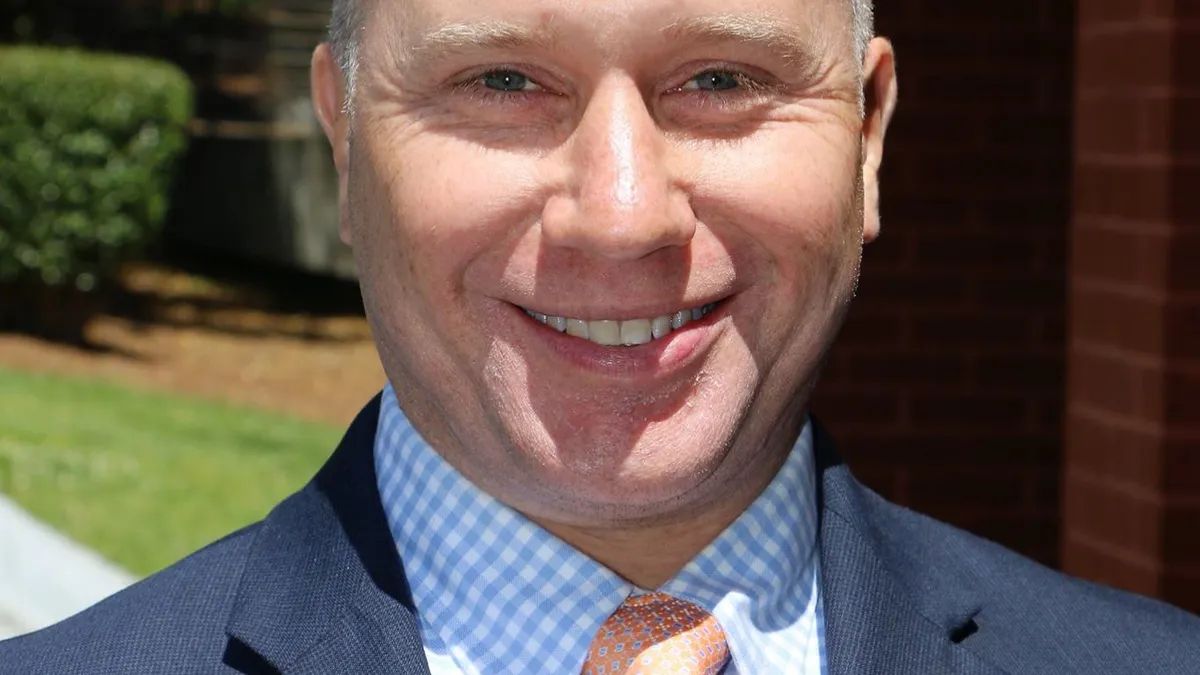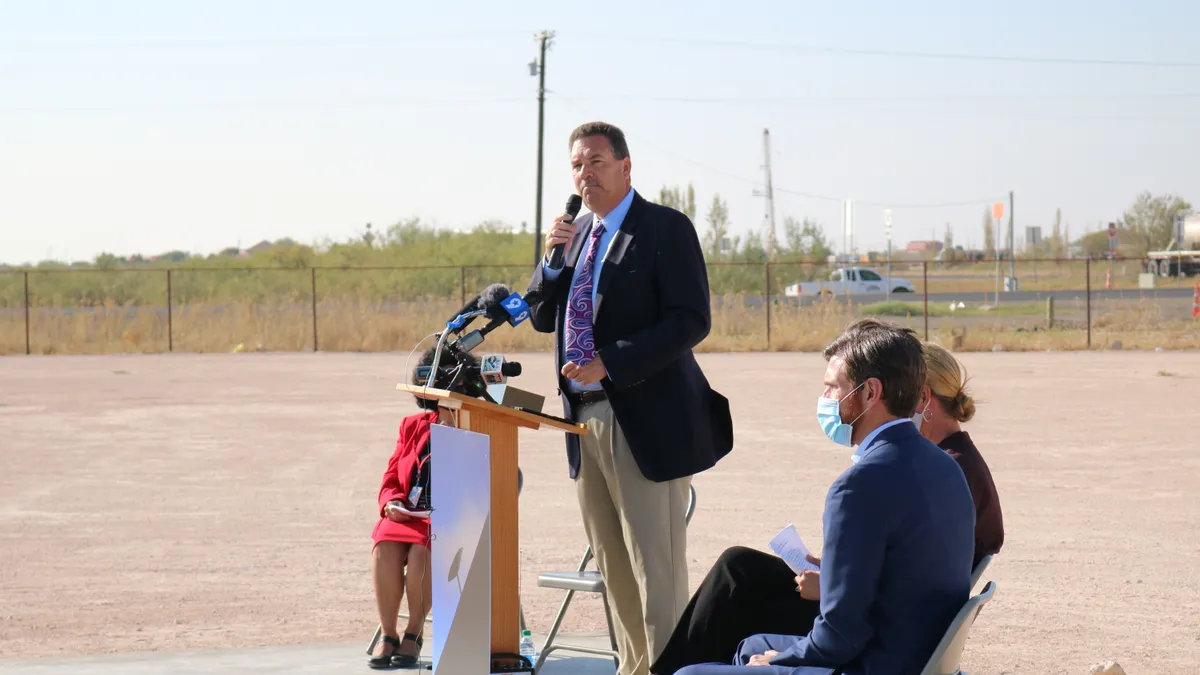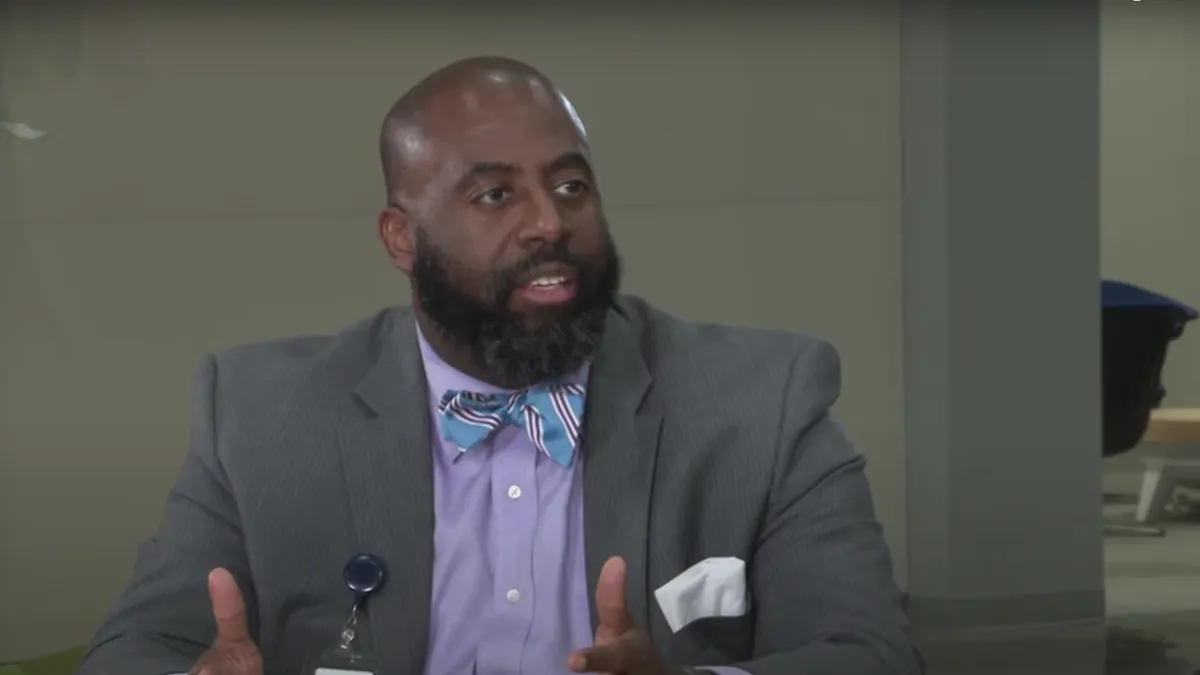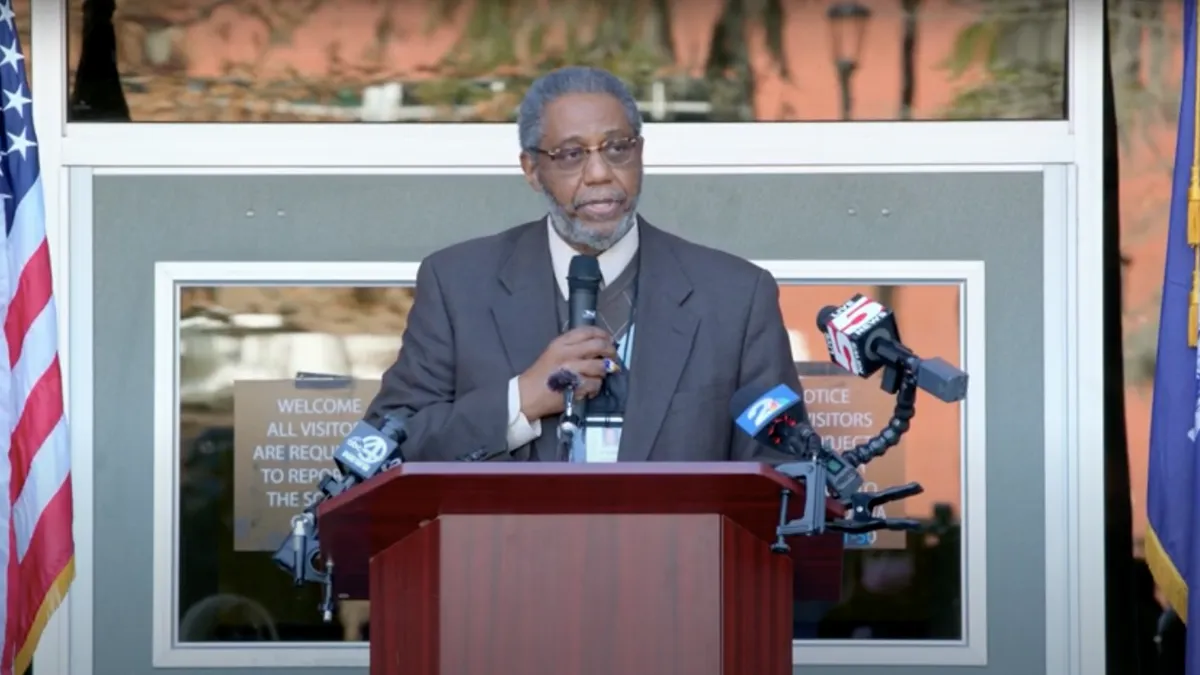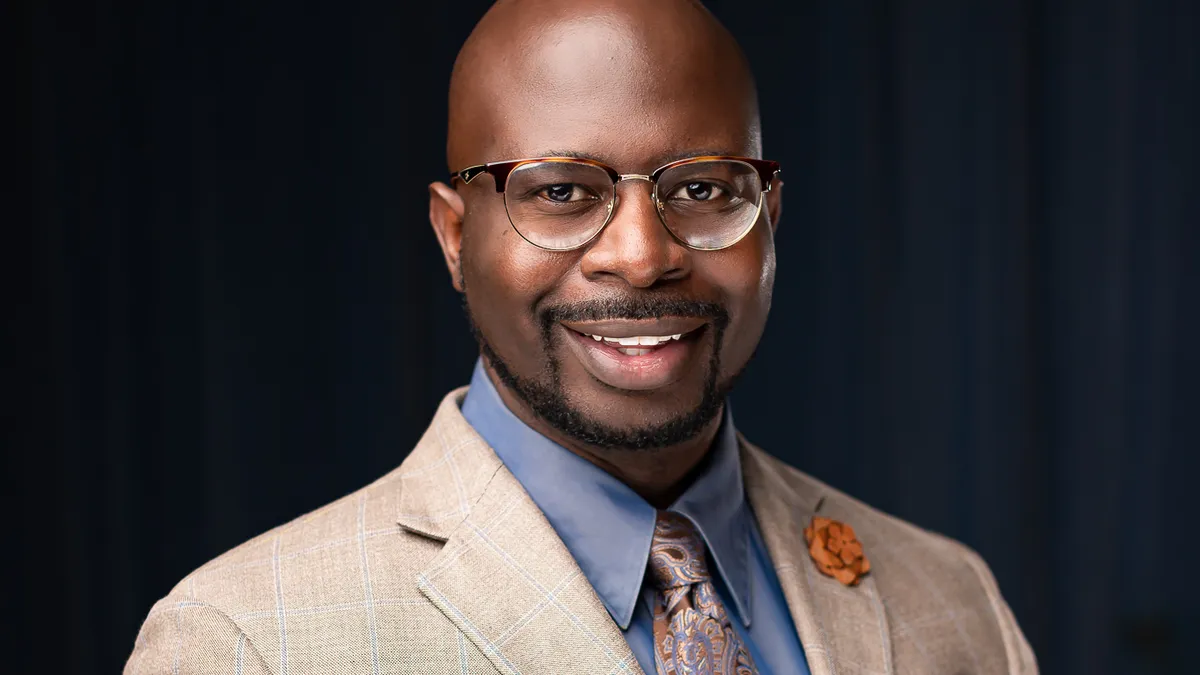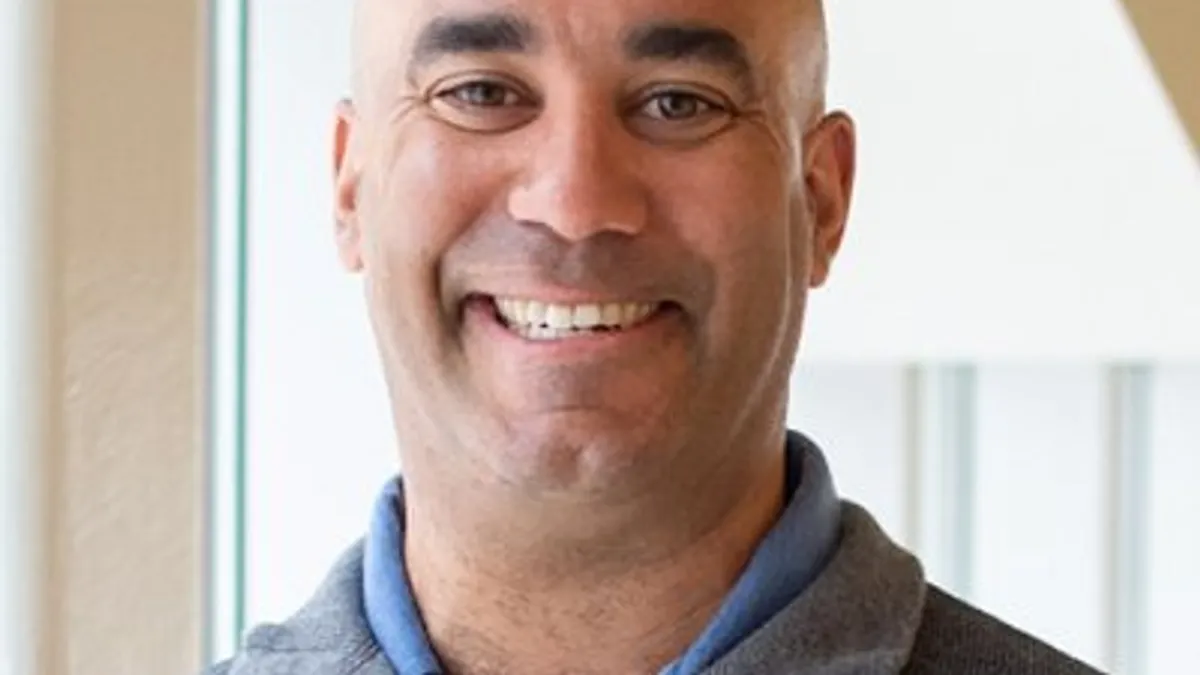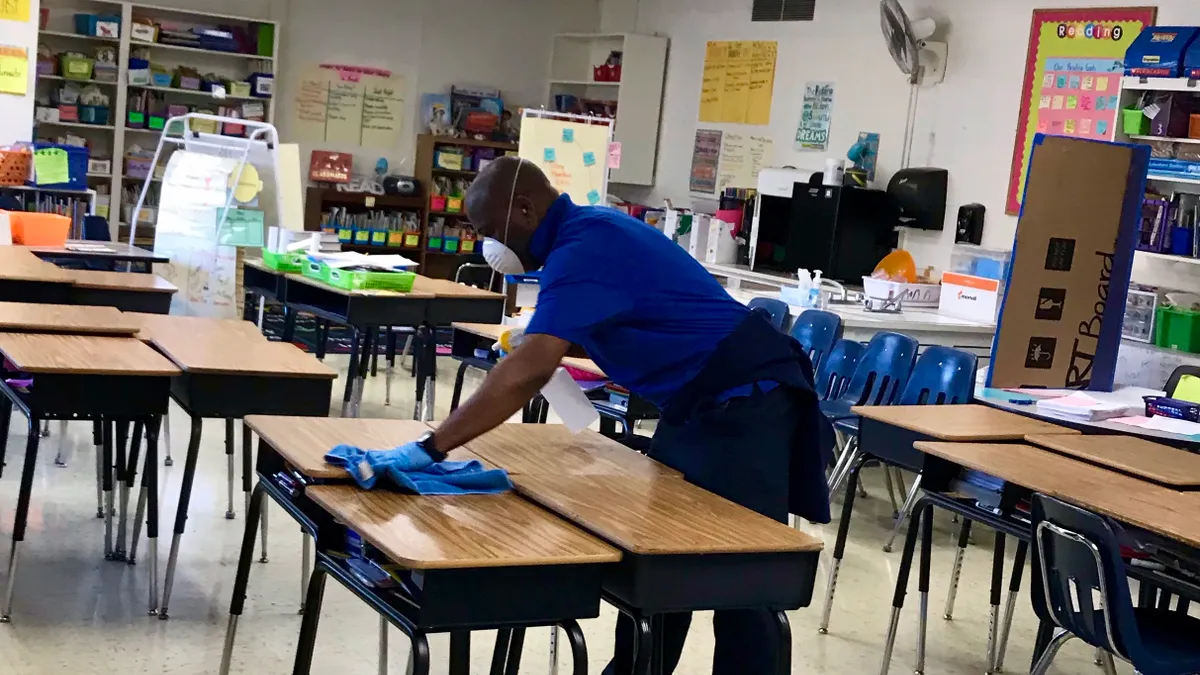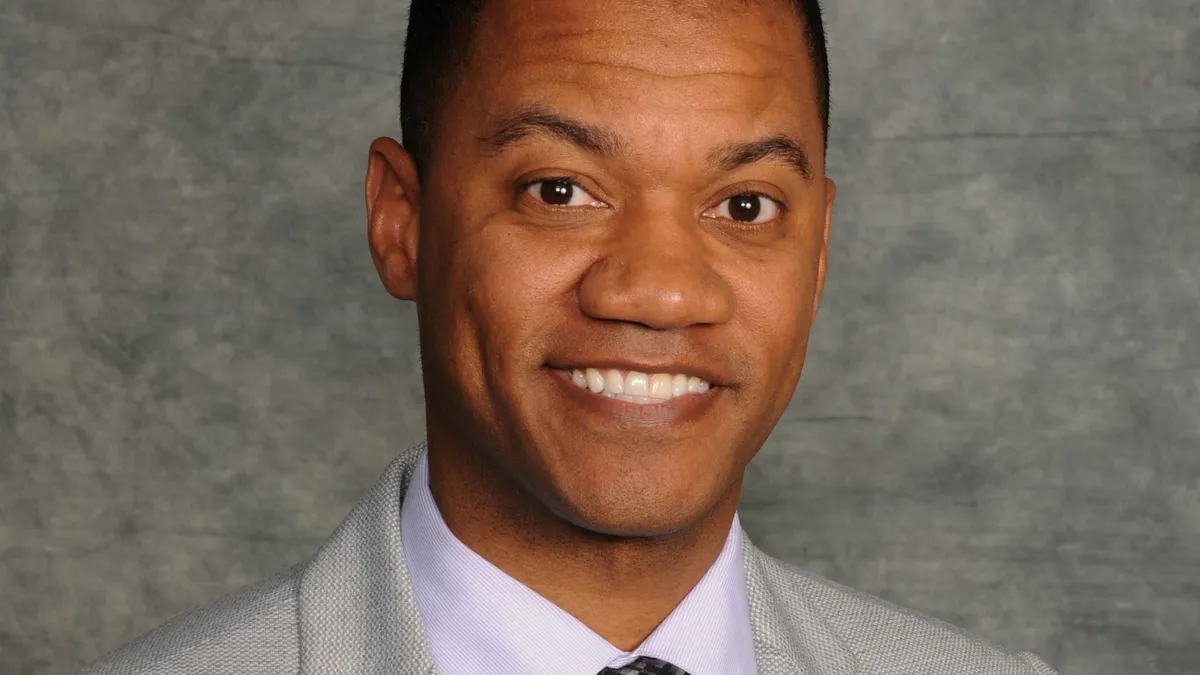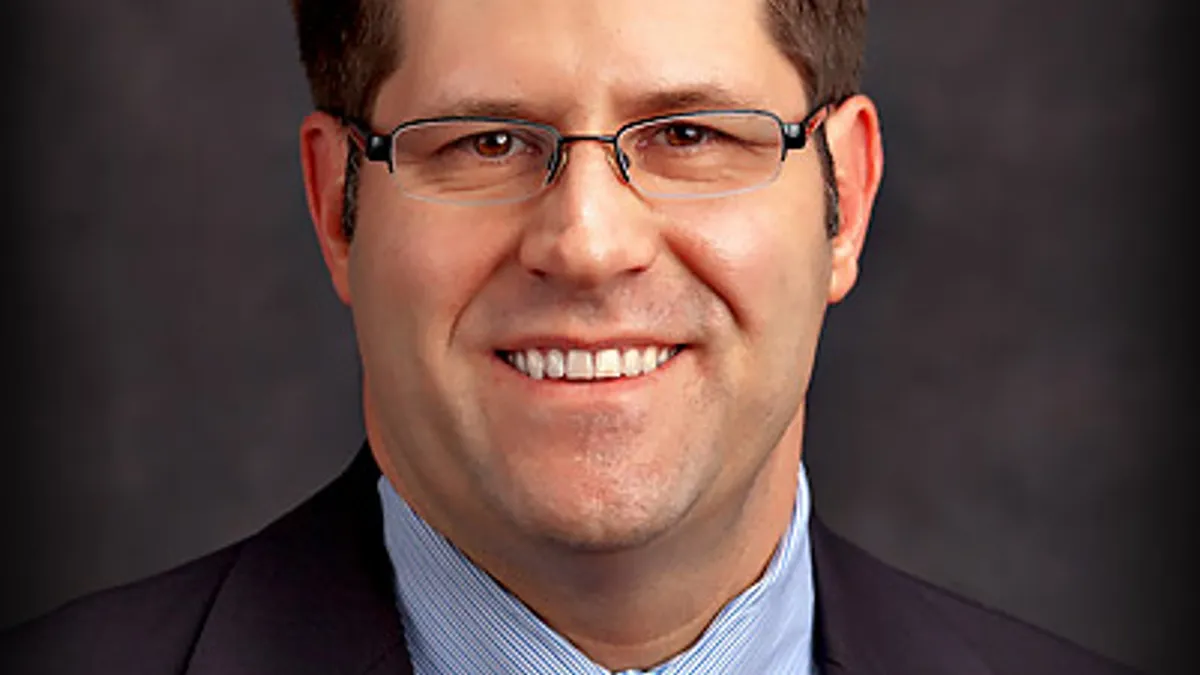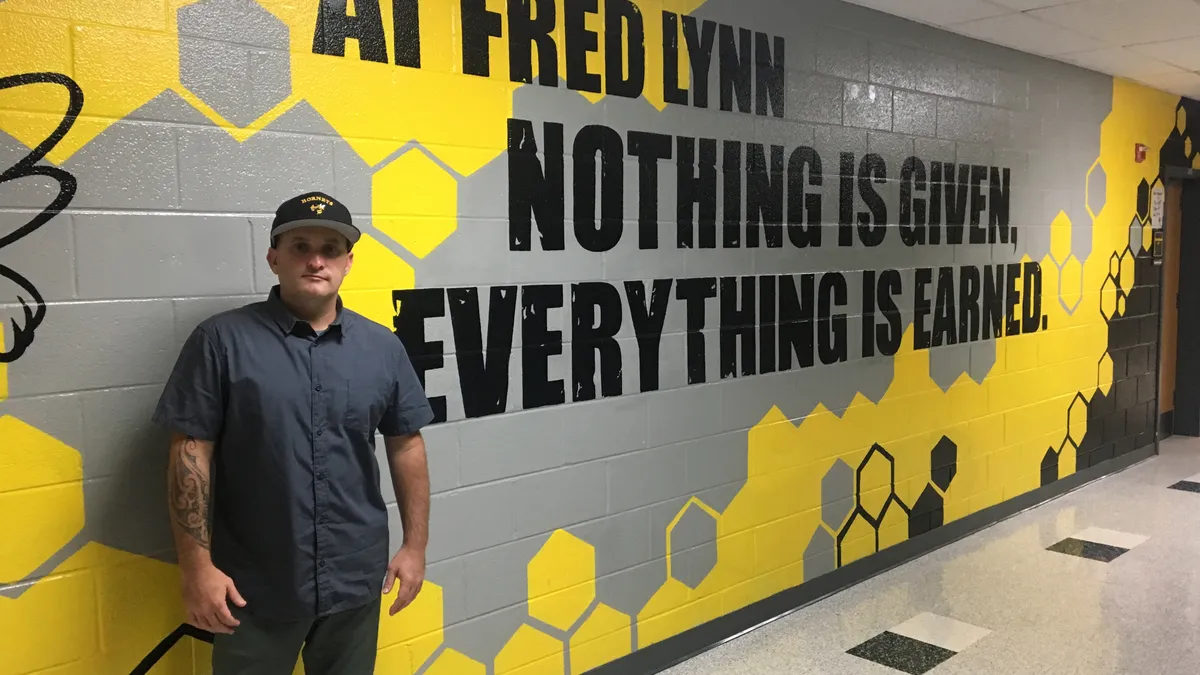Lessons In Leadership is an ongoing series in which K-12 principals and superintendents share their best practices as well as challenges overcome. For more installments, click here.
Running a school or a district is often anything but calm. But that doesn’t mean superintendents and principals can’t strive to bring a sense of calmness to their leadership.
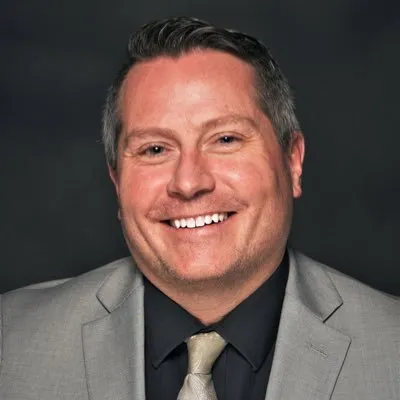
For Glenn Robbins, who has led the 400-student Brigantine Public Schools in New Jersey since 2020, that sense of calm is found in stoic philosophy, which prioritizes a focus on the factors within your control, not succumbing to negative emotion, being present, helping others for a common good, and seeing opportunity in obstacles.
Over his 21-year career, Robbins previously served as superintendent of New Jersey’s Tabernacle School District and as a principal and assistant principal.
“Ultimately, as a school leader, you have to be somewhat stoic. You have to be calm, cool and collected,” says Robbins, who recently co-authored “Calm in the Chaos: Ancient Stoic Wisdom for Successful School Leadership” with Daniel Bauer, an educational consultant specializing in principal development and retention.
“Everybody’s watching you at all times, and what you do reflects very much on your community,”Robbins says.
We recently caught up with Robbins to learn more about how he applies stoicism to the superintendency and what other education leaders can take away from this school of thought.
Editor’s Note: The following interview has been edited for brevity and clarity.
K-12 DIVE: When I think of stoicism, I think of recognizing what you can change in a situation and what you can't, and staying calm. What are some examples of situations where you've had to do that as a school leader?
GLENN ROBBINS: So, I open up the book basically talking about how I'm sitting at a board meeting, and it's a heated situation, and no matter what I looked at or said or did, it was misconstrued. Danny [Bauer] shares a story about how he has to deal with discipline and dealing with a parent.
But yeah, it's things that you can’t control. You can't control social media going off at 1:00 in the morning. You can't control the rumor mills. You can only control what you can within the school district, as well as within your team. And even then, if you think you can control a teacher's classroom, you can't.
What you can control are your opinions, your goals, who you spend time with, your temper, your attitude and your character. Things that are out of your control? Students’ lives, outcome of school initiatives, your teachers’ classrooms, policies established by a school board or central office, and parents and community.
What’s one stoic lesson that you particularly take to heart in leadership?
ROBBINS: My favorite quote, and I'm going to paraphrase here, is from Marcus Aurelius about the waves crashing over the rock, and the rock has to be unmoved as they continue to crash over top of you. And those waves could represent society. They could represent something going on in the community. They could represent anything going on in education.
You’re going to encounter different people every day. You're going to have thousands of questions thrown at you every day. You’ve got to remember that if you make a choice in anger, or you make a choice in disgust, it's going to trickle down real fast for all the wrong reasons. So like I said, it’s about trying to keep calm and composed along the way of being a leader.
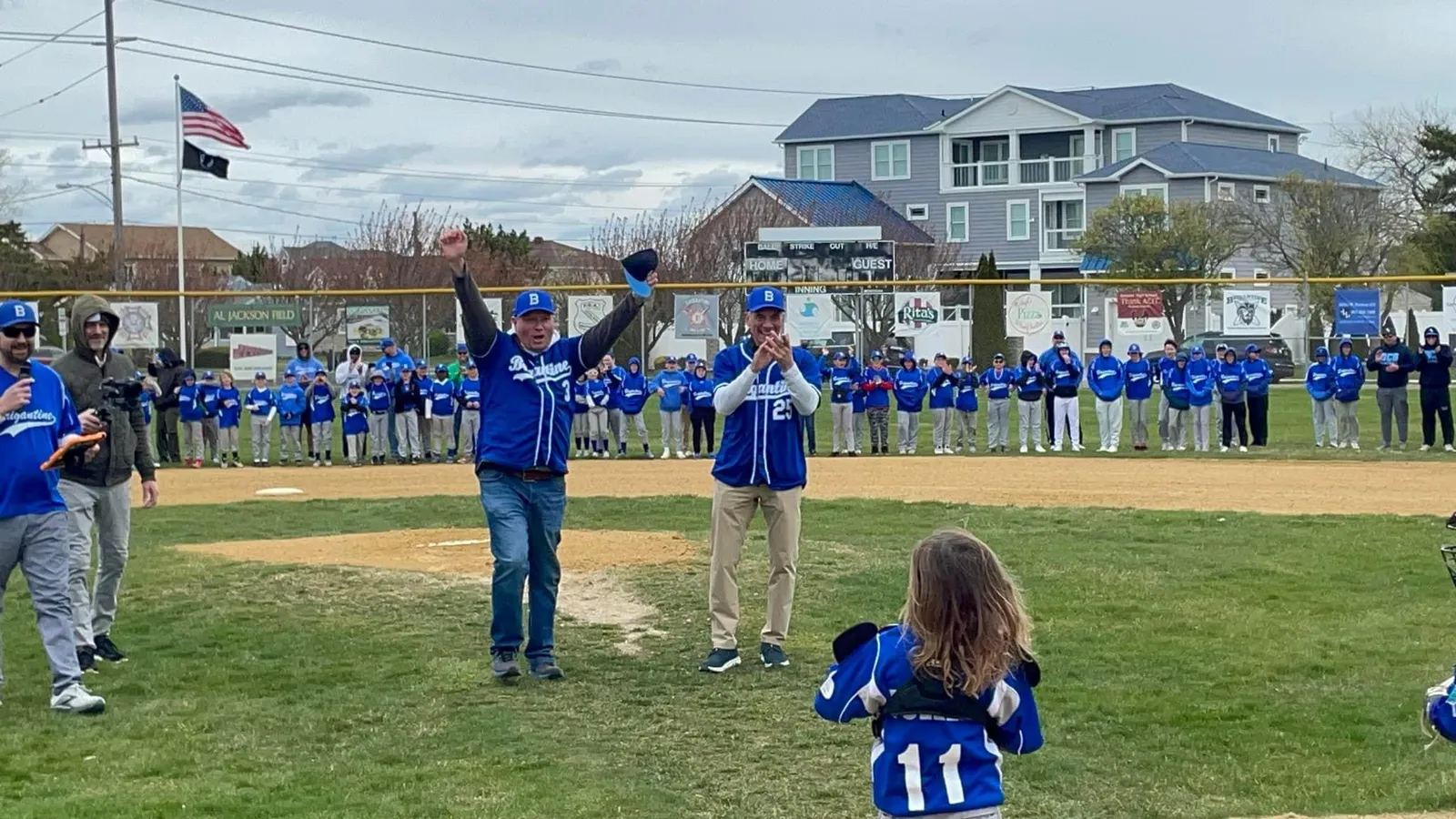
When you think about scenarios where a student is testing boundaries or someone is trying to push your buttons at a board meeting, both those situations involve people who are maybe trying to provoke an emotional response. What is your best advice to educators for how to think through those situations and remain calm and collected?
ROBBINS: Nothing endures, right? Everything will eventually pass, and what we're complaining about will be over.
I'll give you an example for me to stay calm: When I was an assistant principal, I had to deal with homebound instruction — students who are out for sickness or other reasons. I had this young lady in high school who was going through stage 4 cancer. And all the teachers were basically going to the house and basically being somewhat of a friend, talking to her and the mom and trying to give her a normal life.
I had one teacher who was constantly pestering me to make sure she did all the work. And basically, I got to the point where I said, “Look, that's fine. If you want to hold the kid accountable, then you're going to have to personally call that parent and let them know why this is so important.” And I think once I did that, that teacher woke up.
Several weeks later, the girl passed away.
And like you said, people are provoking you in a board meeting. They've had weeks to think about that. You’ve got 30 seconds when it's thrown at you. So your job is to be calm enough to say, “I don't have an answer right now. I'm going to need to get back to you on this. I need to look into this.”
It’s easier said than done, right? You and I both could agree to that, right? You could have people who have irked you and you want to get revenge, but that doesn't do any good for leadership right there. If you go for revenge, then you also dig two graves, because you're going to go down, too.
Your job ultimately in the public sector is to gain people’s trust and respect. And once you lose that, then you cannot be a true leader again for that community.
You mentioned situations where, in the moment, you need to remain calm and say, “You know, I don't have the answer right now, but I'll look into this and get back to you.” But then what happens next?
ROBBINS: You have to get back to them, and that's part of the virtue of justice. I'm not just talking about the system, but that you did tell that person that you would get back to them, and that is your word. You have to follow through on that.
People just want to be heard, and they want to know that they have some kind of a voice. By calling them back after you've researched a little bit more and figured out that there's always three sides to the story — theirs, whatever the other side was, and the side that we still have to figure out amongst ourselves — you do that.
It's easier said than done, but you're only as good as your word. If you can't follow up on something and you're just passing it off, then it's going to get out real fast what type of a leader you are.














